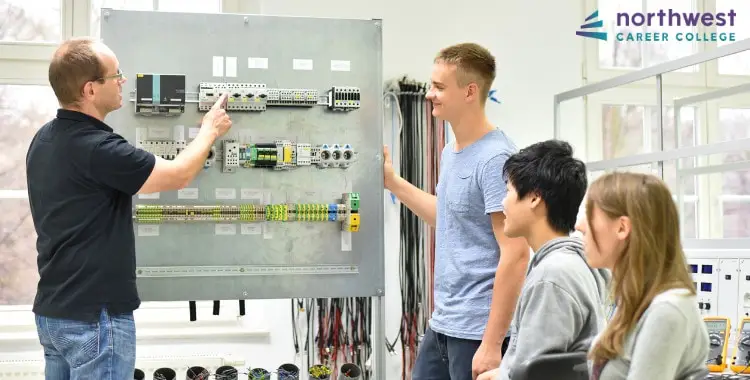What is a Vocational or Technical Qualification?
- Vocational Training
- March 13, 2024
- 2.8k views
- 5 min read

Are you interested in pursuing a career path that integrates practical and theoretical aspects? Do you want to gain the skills, experience, and qualifications needed for your dream job? If so, it may be worth looking into a vocational or technical qualification.
Vocational education provides students with the training they need to develop critical skills and competencies required for specific occupations before entering the workforce.
With these credentials, jobs become more accessible as employers might prioritize those who have completed formal education beyond high school in a particular trade.
In this blog post, we will break down what exactly is meant by “vocational or technical qualifications” and how attaining one of these credentials could open up opportunities for future employment.
Table of Contents
Defining Vocational and Technical Qualifications
Defining vocational and technical qualifications can be challenging, but they are specialized educational programs that train students for specific jobs or industries.
Trade school programs are designed to provide students with practical skills and hands-on experience that are directly relevant to the workplace.
Typically, vocational and technical qualifications focus on more practical subjects like trades, healthcare, information technology, and manufacturing, as opposed to more academic subjects like history or literature.
If you enjoy hands-on work and want to enter a specific career field, vocational and technical qualifications can be a great way to gain the skills and knowledge you need to succeed in your chosen profession.
Exploring the Benefits of Pursuing a Vocation Qualification
Pursuing a vocational education and training can provide many personal and professional benefits.
A vocational qualification is a fast and effective way to acquire the necessary skills and knowledge to excel in a specific career path. This means less time and money spent on education while still obtaining a valuable credential.
Employers also highly value vocational qualifications as they show a dedication to a particular field, making the job application process much smoother.
Furthermore, vocational qualifications can lead to higher wages and increased job security. With such a wide range of advantages, it’s no wonder that more and more individuals are choosing to pursue a vocation qualification.
Types of Vocations or Techniques to Consider
Deciding on a future career can be a daunting task, as there are endless options to choose from. However, it’s essential to consider the types of vocations or techniques that align with your interests and skills.
Whether it’s pursuing a degree in technology, learning a skilled trade, or earning a vocational qualification, choosing a path you are passionate about is essential.
A vocational qualification, in particular, can be an excellent option for those interested in pursuing a hands-on career. These qualifications provide practical training and experience in a specific field, such as healthcare or construction, which can lead to rewarding and fulfilling careers.
So, take the time to explore your interests and research different options to find the right path for you.
How to Choose an Appropriate Program
Choosing a vocational qualification program can be a daunting task, but with some research and preparation, you can find the right program that will positively impact your career.
Considering your career goals, personal skills and interests, and the job market demands is essential before selecting a program.
You should also ensure that the program is accredited and that it meets industry standards and requirements. With the right program, you can gain the skills and knowledge to succeed in your chosen field, making your vocational qualification a valuable investment in your future.
Preparing for the Technical Qualification Process
Preparing for training at a vocational training institute can be daunting for anyone seeking a vocational qualification. This process requires preparation, dedication, and knowledge of the subject area.
However, it is also an opportunity for individuals to demonstrate their skills and knowledge in a particular field. Whether in engineering, technology, or health services, the technical qualification process is a vital step toward gaining recognition for one’s expertise.
Individuals can feel confident in their abilities and ultimately achieve their vocational goals by taking the necessary steps to prepare, such as researching the qualification requirements and taking practice exams.
Finding Financial Support for Your Education Goals
Are you looking to further your education and obtain a vocational qualification but struggling to find financial support? It’s not uncommon for the cost of education to be a barrier to achieving our career goals. However, there are options available to help make your dreams a reality.
Research grants and scholarships that align with your education and career path. Consider taking out a student loan or accessing government-supported educational assistance programs.
Don’t let financial barriers stand in the way of your education and future success. With determination and a bit of research, you can find the financial support needed to achieve your vocational goals.
At Northwest Career College, we offer students several vocational and online courses to help them gain the skills they need for a successful future. Contact us today if you’re ready to imprint valuable skillsets on your resume – we look forward to hearing from you!




